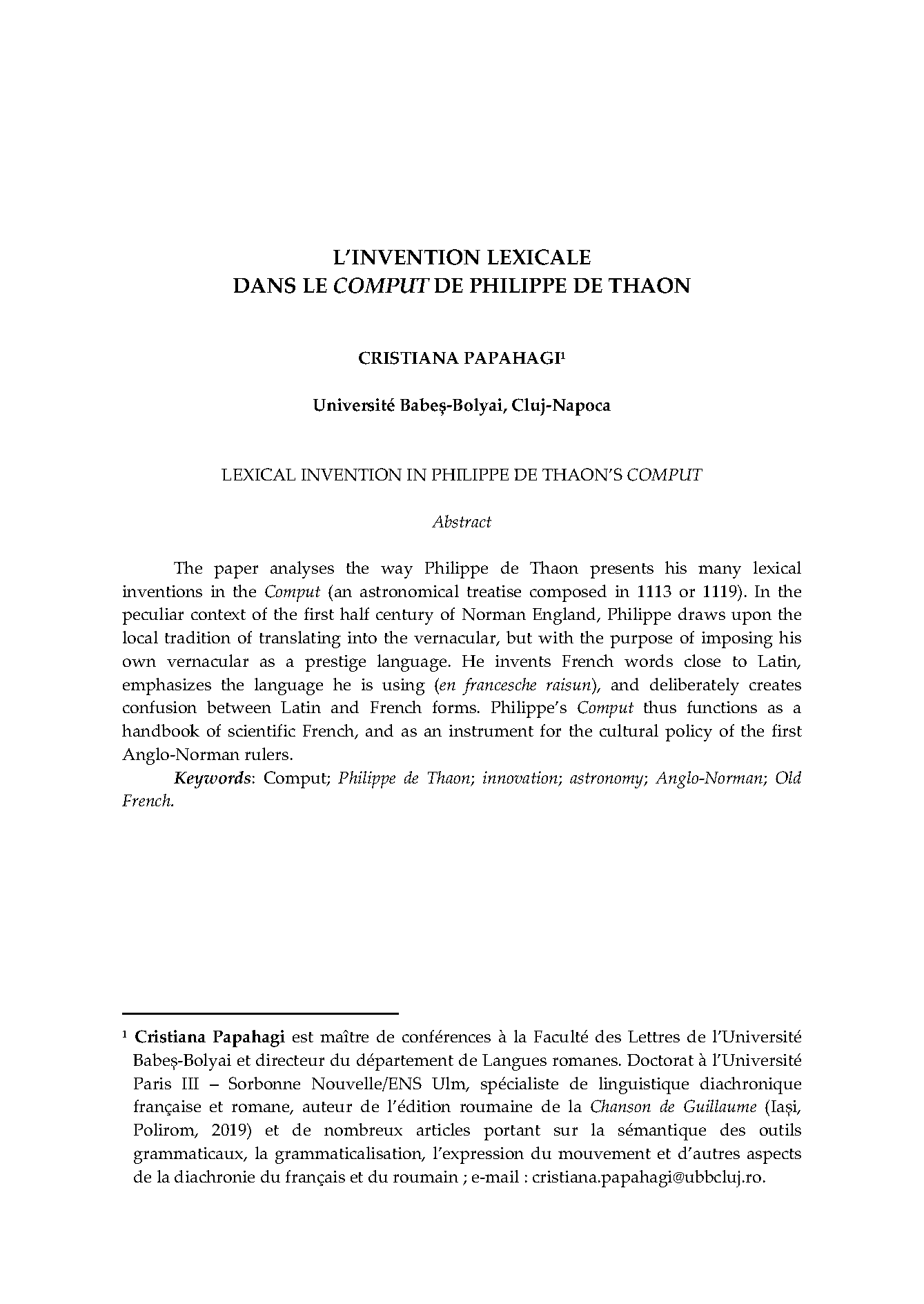L’ INVENTION LEXICALEDANS LE COMPUT DE PHILIPPE DE THAON
DOI:
https://doi.org/10.62229/aubllrlxxi/22/4Keywords:
Comput, Philippe de Thaon, innovation, astronomy, Anglo-Norman, Old FrenchAbstract
The paper analyses the way Philippe de Thaon presents his many lexical inventions in the Comput (an astronomical treatise composed in 1113 or 1119). In the peculiar context of the first half century of Norman England, Philippe draws upon the local tradition of translating into the vernacular, but with the purpose of imposing his own vernacular as a prestige language. He invents French words close to Latin, emphasizes the language he is using (en francesche raisun), and deliberately creates confusion between Latin and French forms. Philippe’s Comput thus functions as a handbook of scientific French, and as an instrument for the cultural policy of the first Anglo-Norman rulers.





